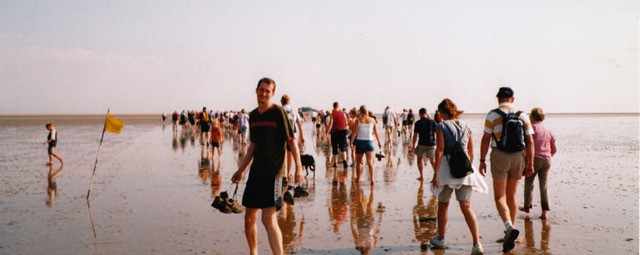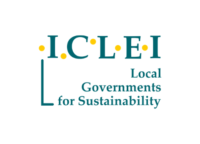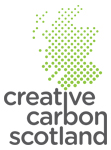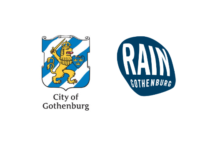Cultural Adaptations explores how creative practices can contribute to climate change adaptation. In Glasgow, producer and writer Lesley Anne Rose is embedded within strategic adaptation partnership, Climate Ready Clyde. In this blog, Lesley Anne explores what we can learn from travel writing, and what journeys and strategies have in common, and how we can make often-distant adaptation strategies relevant to the people they affect.
“It is good to have an end to journey toward; but it is the journey that matters, in the end.”
Ursula K. Le Guin, The Left Hand of Darkness
A strategy is, in effect, a story of a journey. It details who you are, what’s important to you, the way things are right now, a vision of a new place you aspire to reach and the steps that need to be taken to get there. Like all good guidebooks, a strategy should inform and inspire, fulfilling joint roles as a practical reference, while also bringing life to the road ahead.
Here are a few tricks of the travel writing trade that can be brought to the strategy writing table.
Who are you writing for?
One of the most successful businessman, and the only billionaire, I know, once told me that he has never written a business plan or strategy in his life. So before starting to write one, be clear why you are writing it and for whom you are writing it.
In the travel trade we are given a clear brief on the market for our books before we write a word – families, off-the-beaten-track travellers or those with luxury travel in mind. Who do you want to travel with you? Employees of your company? Your board? Potential funders? Or a wider public with a vested interest in the work you do? Write with them by your side.
Who is telling the story of the place you are heading towards?
Telling the story of a place is as much about letting it speak for itself as it is you sharing your views on it. Drawing on your research into who your strategy is for, consider whose voices can best represent the destination you are travelling towards.
A travel writer is taught to open an article on a place they are writing about with a quote from someone who lives there. It’s also a favourite opener for journalists in programmes such as the BBC’s From Our Own Correspondent. Quoting from someone who knows all about your destination brings the place you are writing about to life. If your strategy advocates change to your company, community group or organisation ask employees, group members, service users etc for their thoughts and opinions. They are experts in their own communities, sectors or places of work and inputting their ideas and expertise, will also validate what you have to say afterwards.
Those voices also need personality and passion. The BBC’s The Blue Planet, a documentary about the natural history of the oceans, had such a strong impact because viewers trust David Attenborough as an expert, but the passion in his voice inspired many to connect with climate change in a way they have never done so before. Expert voices bring life to what could otherwise be a dry document and facilitate a sense of ownership in a strategy where success depends on the buy-in of fellow travellers.
It could be that some of the voices of those who will be affected by the impacts of your strategy can’t speak through it. If your strategy is related to climate change or the environment this could include wildlife, biodiversity and the next generation. So decide who can speak for them and make sure the invisible are also given voice.
Make it personal
An authentic, passionate voice is one way to engage and inspire action; another is making the story of your company or organisation relevant to the story of those your strategy is written for. To make your story relevant to theirs, get close to your reader. Present the story of place at different levels from the ground up, starting with the individual and, potentially, ending up at the global.
If you set personal stories against global narratives readers understand how they fit into the bigger picture. So build a narrative of change from the starting point of an individual or community, explain how this fits with a wider sense of place such as a region or country and then make the wider case for the global context.
Making it personal also enables further emotional investment from readers. This is essential in strategies that address the impacts of climate change because too often scientists only articulate this story. Scientists work with facts and facts are dry, unemotional, impersonal and analytical. None of which are motivators for change. A strategy, like a story, should engage hearts as well as heads, inspiring us to leave where we are now, backed up with reasons why we should.
“The real act of discovery is not seeing new lands, but seeing with new eyes.”
Proust
Frame your story
In travel writing we call this ‘locate your reader’ and this is often a place of conflict within in a story and a strategy. To some the framing of their story of climate change will focus on job loss and threats to the economy with the destination depicted as a place of low employment, job insecurity and poverty. Another will set out a vision of a green economy rich with new jobs and an employed workforce saved from failing industries. With conflicts like this in mind, framing the story of your strategy and place could be an exercise in re-framing an existing narrative or opinions using new characters, alternative values and fresh perspectives – turning what some call a ‘crap town’ into urban chic.
When framing your strategy consider the back story of your organisation, relevant background context on the sector you are working within and the bigger picture of the political, social and economic landscape your strategy sits within. This also chimes with the work of a travel writer as we seek to understand and explain place through its past, present and possible future.
Lose nothing in translation
All good travel writers and journalists grab the reader’s attention quickly and effectively. They use accurate, concise and accessible language, being clear why people should care. They also don’t assume that potential readers know everything already and are mindful to include or reference all essential information. If in doubt, ask someone to read your strategy who knows nothing about your company or organisation, to check what, if anything, is missing.
“We don’t take a trip. A trip takes us.”
John Steinbeck: Travels With Charlie
When preparation meets opportunity, change happens. Any trip worth taking requires planning, preparation and a clear vision of the road ahead. Not least of which because trips never go as planned. Putting time and effort into creating a well-written strategy means you have a solid guidebook to take with you on the journey, helping you, your organisation, company or community group navigate the unexpected, take detours if you have to, while never losing sight of your destination.
Image: Lesley Anne Rose














